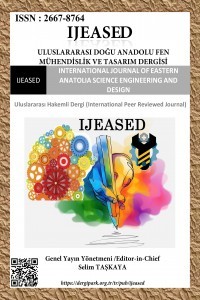
Uluslararası Doğu Anadolu Fen Mühendislik ve Tasarım Dergisi
Yazarlar: Fatma ŞİMŞEK, Recep KOTAN, Fatih CEYHAN, Çağlar SOYTÜRK, Sabri BARAN
Konular:Ziraat
DOI:10.47898/ijeased.879024
Anahtar Kelimeler:Sugar Beet,Microbial Fertilizer,Yield Increase,Chemical Fertilizer,Kayseri Şeker Fabrikası,PGPR
Özet: In this study; The effect of microbial fertilizer formulations containing bacteria on beet yield and quality were investigated in Gemerek (Sivas) and Yahyalı (Kayseri), which are the cultivation areas of Kayseri Şeker. "Beta brand Zanzibar (NZ) variety naked seed". Six different bacterial isolates (Pantoea agglomerans RK-79, Pantoea agglomerans RK-92, Bacillus megaterium TV-3D, Bacillus megaterium TV-6D, Paenibacillus polymyxa TV-12E, and Bacillus subtilis TV-17C) were used in the study. 3 different bacteria-containing formulations created from these bacteria and the seeds coated with a carrier liquid that does not contain Control (K) bacteria were carried out in three replications according to the random block trial design based on complete randomization. The same soil preparation application of the local farmers was applied in the experimental areas in their own cultivation areas. The chemical fertilizer was reduced by half and the formulations containing 4.55 kg/da N (Nitrogen) and 1.25 lt / da bacteria were applied in the control area in Yahyalı region. In the Gemerek region, 14.10 kg/da N and 0.75 lt / da bacteria-containing formulations were applied, while 26.10 kg/da N was used in the control area. According to the results of the analysis, while the Formulation 2 application showed good results with 5.27% efficiency (kg/da) increase and 1.85% polar value increase in the Yahyalı region, the increasi in Gemerek region was 16.48% yield (kg/da) increase and 9%,, Formulation 3 application yielded the best results with an increase of 34 polar values. Within the scope of these results, it is predicted that there may be serious gains in yield and environmental health in sugar beet agriculture.